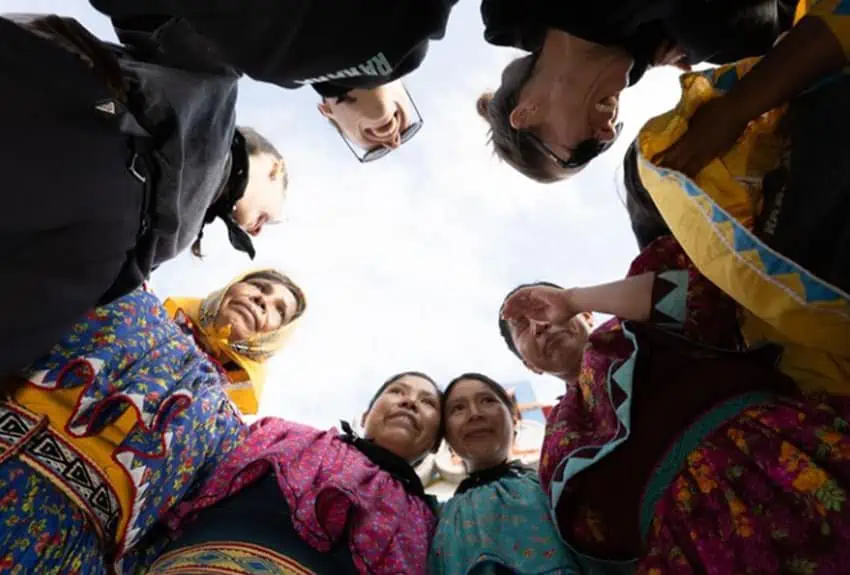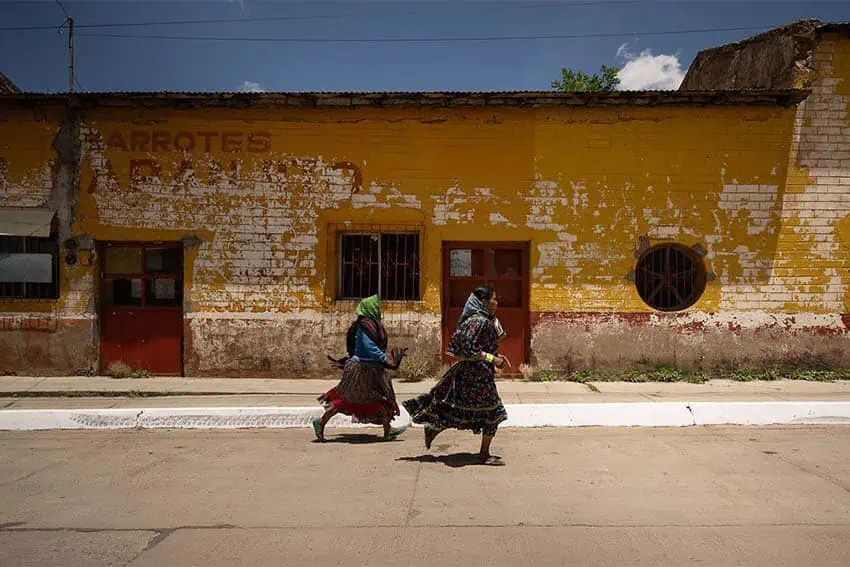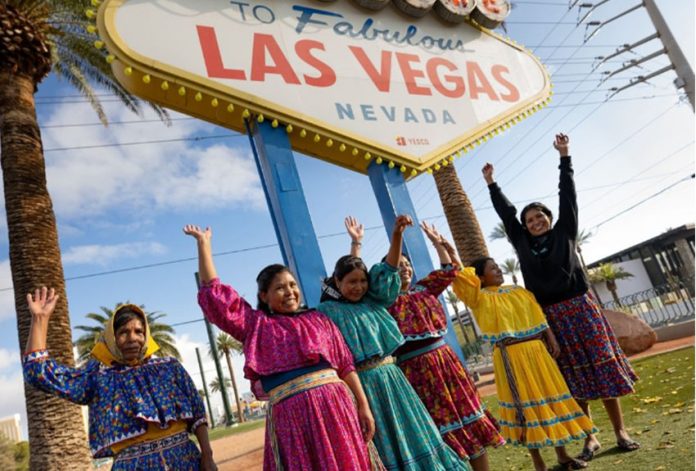A 540-kilometer ultramarathon from Los Angeles to Las Vegas dubbed The Speed Project experienced a first this weekend: six women finishers from the Indigenous Rarámuri community that lives in the mountains of Chihuahua.
Wearing huaraches (sandals) rather than running shoes, the brightly dressed Ra Ra Ra Team completed the 335-mile race in just over two full days and nights of running as a relay group — without stopping, one of the few rules of the invitation-only event that’s shrouded in mystery.

It marked the first time that a group of Rarámuri women completed the race.
Though there is no set route, the race began at the Santa Monica Pier at 4 a.m. Friday and stretched through the Mojave Desert to the “Welcome to Las Vegas” sign, with 15,000 feet of elevation gain along the way.
According to Runner’s World magazine, the race is “clouded in equal parts mystery and intrigue.” It isn’t sanctioned by any running organization, it has no website, its Facebook page hasn’t been updated in a year and there is no official set of regulations.
After beginning in 2014 on the strength of a rumor, the event “has a reputation for being one of the hardest — and most secretive — relay races in the world,” Runners World notes. There is also a race for single runners who want to cover the entire distance themselves.
The runners of Rarámuri origin who competed are from the Sierra Tarahumara, a mountain range in northwestern Mexico that forms part of the Barrancas del Cobre (Copper Canyon).
They are Verónica Palma, 34; Ulisa Fuentes, 25; Isadora Rodríguez, 46; Lucía Nava, 27; Rosa Para, 29; and Argelia Orpinel, 40. Many of them had competed in (and won) individual ultramarathons and/or marathons.

For this race, each ran approximately 90 kilometers (56 miles) over three days. The women followed the active runner in a camper van, and then a teammate took over when necessary.
The race is equivalent to just under 13 marathons.
The Indigenous Rarámuri, or Tarahumara, are renowned for producing many long-distance runners, who typically run in sandals made with discarded car tires. After studying their cardiovascular functions 50 years ago, cardiologist Dale Groom called them “modern Spartans.” Rarámuri means “light-footed” in their native language.
“37 kms,” a feature-length drama about Rarámuri runners seeking to compete in the Mexico City Marathon, premiered last year. And the name of Rarámuri runner Lorena Ramírez became familiar to many after she was featured in the 2019 Netflix documentary “Lorena, Light-Footed Woman.”
“Capable of wandering in all kinds of complicated terrain, Rarámuris are born to run,” the newspaper La Jornada wrote this week. “Accustomed to traveling along steep trails and unusual paths, [The Speed Project] was very similar to the mountainous terrain in which they move daily in the Sierra Madre Occidental.”
The women — all mothers — wore traditional wide skirts made of printed fabric and striking colors. Their finishing time was 52 hours.
The team reportedly received US $6,000 for participating, which didn’t cover their expenses. They tried to raise 500,000 pesos (US $30,200), but their page on Donadora.org had raised only 234,093 pesos as of Tuesday morning.
View this post on Instagram
Click on the picture to see a short video profile on the Rarámuri relay team. (Beba Gonzlaez)
With reports from Expansión, La Jornada and Latinus
